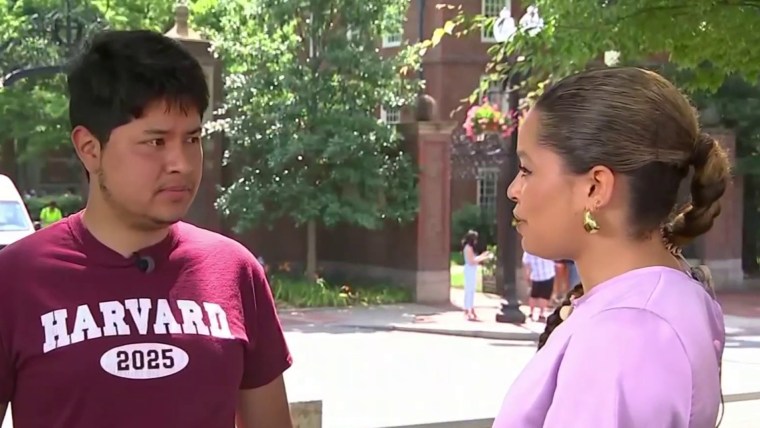Higher education and civil rights leaders worry the Supreme Court ruling on affirmative action may embolden “those with hate in their minds” to disenfranchise students of color attending elite colleges.
Speaking to reporters Friday morning, leaders from across the country responded to the ruling determining that selective colleges and universities can’t use race as a factor in admissions. They also outlined what the decision means and doesn’t mean for students and higher education institutions.
“The court effectively ended a 45-year-old precedent,” said Tom Saenz, president and general counsel of the Mexican American Legal Defense and Educational Fund, better known as MALDEF.
“We should all be clear that that’s how far backward the majority decision takes us,” he added.
While the Supreme Court ruled that the affirmative action programs at the University of North Carolina and Harvard violated the Constitution’s equal protection clause when considering race as a factor in the college admissions process, nothing in the decision indicates “that somehow Harvard and UNC systems did not identify the students who had every right and merited admission to those institutions as to any other,” Saenz said.
“It’s important to point out because there will be those with hate in their minds who will seek to tell Black and Latino students attending selective institutions that the Supreme Court says they do not belong. That is false,” Saenz said. “Every current Black, Latino student, student of any race, deserves and belongs where they are.”
J. Luke Wood, the incoming president of California State University, Sacramento, said he anticipates “that there will be elevated hate” across campuses nationwide as a result of the Supreme Court decision.
That’s why leaders Friday concurred that it’s more important than ever for colleges to ensure all students feel like they belong on campus. They said they intend to do so by publicly embracing diversity and inclusion, as well as rejecting and condemning racism.
While leaders were reassuring students like Agustín León-Sáenz, a sophomore at Harvard, that they belong on campus, many students on the school’s campus Thursday were expressing concern about how the ruling will affect aspiring college students of color.
“This is literally high stakes for my family,” León-Sáenz told MSNBC. He said he thinks about how it will affect his little brother, who will apply for college in a few years, and his cousin, who will apply for college in the fall. It makes him think about “the people from my community, specifically from the state of New Mexico, where I am one of two students from New Mexico in my school year. So this has immediate impacts.”
Higher education experts have suggested that expanding recruitment efforts to include different kinds of high schools, creating pipeline programs to recruit students from community colleges, and minimizing the reliance on standardized test scores are some of the ways elite schools affected by the decision can mitigate some of its effects.
“I hope that Harvard, as soon as it can, can ramp up undergraduate recruitment of under-represented minorities,” León-Sáenz added. “That, specifically to me, looks like going out to communities in New Mexico that are Indigenous, recruiting students of all nationalities and all backgrounds to come.”
NBC News and MSNBC share a parent company, NBCUniversal.
Leaders emphasized to reporters Friday that, while the ruling focuses specifically on barring race as a factor in admissions, it doesn’t limit a university’s ability to implement outreach, engagement and retention programs aimed at enrolling diverse student bodies.
But still, “legal opinions can be interpreted very differently depending upon how institutions perceive risk,” said Wood, a former chief diversity officer.
Based on his experience, “this only serves as a gateway into other conversations and pushback” that may affect college admissions, faculty hiring, scholarships, fundraising, student support services and retention efforts that are specifically designed for underrepresented communities, Wood said.
For this reason, the federal government and the Department of Education will have an important role in providing guidance to higher education institutions around how parts of the Supreme Court decision should be interpreted, Saenz said.
Sally Chen, the education equity program manager at Chinese for Affirmative Action, said she hopes this moment serves as a gateway “to challenge the idea that college is a zero-sum game” or the idea that “if someone gets a spot, someone else loses a spot.”
“If we accept that logic, we will always be working in a framework where education is something earned as opposed to a public good,” Chen said.







